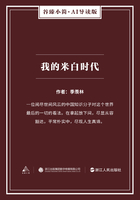If the cities of the Palatinate could not be retained, they might be destroyed. If the soil of the Palatinate was not to furnish supplies to the French, it might be so wasted that it would at least furnish no supplies to the Germans. The ironhearted statesman submitted his plan, probably with much management and with some disguise, to Lewis; and Lewis, in an evil hour for his fame, assented. Duras received orders to turn one of the fairest regions of Europe into a wilderness. Fifteen years earlier Turenne had ravaged part of that fine country. But the ravages committed by Turenne, though they have left a deep stain on his glory, were mere sport in comparison with the horrors of this second devastation. The French commander announced to near half a million of human beings that he granted them three days of grace, and that, within that time, they must shift for themselves. Soon the roads and fields, which then lay deep in snow, were blackened by innumerable multitudes of men, women, and children flying from their homes. Many died of cold and hunger: but enough survived to fill the streets of all the cities of Europe with lean and squalid beggars, who had once been thriving farmers and shopkeepers. Meanwhile the work of destruction began. The flames went up from every marketplace, every hamlet, every parish church, every country seat, within the devoted provinces. The fields where the corn had been sown were ploughed up. The orchards were hewn down. No promise of a harvest was left on the fertile plains near what had once been Frankenthal. Not a vine, not an almond tree, was to be seen on the slopes of the sunny hills round what had once been Heidelberg. No respect was shown to palaces, to temples, to monasteries, to infirmaries, to beautiful works of art, to monuments of the illustrious dead. The farfamed castle of the Elector Palatine was turned into a heap of ruins. The adjoining hospital was sacked. The provisions, the medicines, the pallets on which the sick lay were destroyed. The very stones of which Mannheim had been built were flung into the Rhine. The magnificent Cathedral of Spires perished, and with it the marble sepulchres of eight Caesars. The coffins were broken open. The ashes were scattered to the winds.106 Treves, with its fair bridge, its Roman amphitheatre, its venerable churches, convents, and colleges, was doomed to the same fate. But, before this last crime had been perpetrated, Lewis was recalled to a better mind by the execrations of all the neighbouring nations, by the silence and confusion of his flatterers, and by the expostulations of his wife. He had been more than two years secretly married to Frances de Maintenon, the governess of his natural children. It would be hard to name any woman who, with so little romance in her temper, has had so much in her life. Her early years had been passed in poverty and obscurity. Her first husband had supported himself by writing burlesque farces and poems. When she attracted the notice of her sovereign, she could no longer boast of youth or beauty: but she possessed in an extraordinary degree those more lasting charms, which men of sense, whose passions age has tamed, and whose life is a life of business and care, prize most highly in a female companion. Her character was such as has been well compared to that soft green on which the eye, wearied by warm tints and glaring lights, reposes with pleasure. A just understanding; an inexhaustible yet never redundant flow of rational, gentle, and sprightly conversation; a temper of which the serenity was never for a moment ruffled, a tact which surpassed the tact of her sex as much as the tact of her sex surpasses the tact of ours; such were the qualities which made the widow of a buffoon first the confidential friend, and then the spouse, of the proudest and most powerful of European kings. It was said that Lewis had been with difficulty prevented by the arguments and vehement entreaties of Louvois from declaring her Queen of France. It is certain that she regarded Louvois as her enemy. Her hatred of him, cooperating perhaps with better feelings, induced her to plead the cause of the unhappy people of the Rhine. She appealed to those sentiments of compassion which, though weakened by many corrupting influences, were not altogether extinct in her husband's mind, and to those sentiments of religion which had too often impelled him to cruelty, but which, on the present occasion, were on the side of humanity. He relented: and Treves was spared.107 In truth he could hardly fail to perceive that he had committed a great error. The devastation of the Palatinate, while it had not in any sensible degree lessened the power of his enemies, had inflamed their animosity, and had furnished them with inexhaustible matter for invective. The cry of vengeance rose on every side. Whatever scruple either branch of the House of Austria might have felt about coalescing with Protestants was completely removed. Lewis accused the Emperor and the Catholic King of having betrayed the cause of the Church; of having allied themselves with an usurper who was the avowed champion of the great schism; of having been accessary to the foul wrong done to a lawful sovereign who was guilty of no crime but zeal for the true religion. James sent to Vienna and Madrid piteous letters, in which he recounted his misfortunes, and implored the assistance of his brother kings, his brothers also in the faith, against the unnatural children and the rebellious subjects who had driven him into exile. But there was little difficulty in framing a plausible answer both to the reproaches of Lewis and to the supplications of James. Leopold and Charles declared that they had not, even for purposes of just selfdefence, leagued themselves with heretics, till their enemy had, for purposes of unjust aggression, leagued himself with Mahometans. Nor was this the worst. The French King, not content with assisting the Moslem against the Christians, was himself treating Christians with a barbarity which would have shocked the very Moslem. His infidel allies, to do them justice, had not perpetrated on the Danube such outrages against the edifices and the members of the Holy Catholic Church as he who called himself the eldest son of that Church was perpetrating on the Rhine. On these grounds, the princes to whom James had appealed replied by appealing, with many professions of good will and compassion, to himself. He was surely too just to blame them for thinking that it was their first duty to defend their own people against such outrages as had turned the Palatinate into a desert, or for calling in the aid of Protestants against an enemy who had not scrupled to call in the aid of the Turks.108During the winter and the earlier part of the spring, the powers hostile to France were gathering their strength for a great effort, and were in constant communication with one another. As the season for military operations approached, the solemn appeals of injured nations to the God of battles came forth in rapid succession. The manifesto of the Germanic body appeared in February; that of the States General in March; that of the House of Brandenburg in April; and that of Spain in May.109Here, as soon as the ceremony of the coronation was over, the House of Commons determined to take into consideration the late proceedings of the French king.110 In the debate, that hatred of the powerful, unscrupulous and imperious Lewis, which had, during twenty years of vassalage, festered in the hearts of Englishmen, broke violently forth. He was called the most Christian Turk, the most Christian ravager of Christendom, the most Christian barbarian who had perpetrated on Christians outrages of which his infidel allies would have been ashamed.111 A committee, consisting chiefly of ardent Whigs, was appointed to prepare an address. John Hampden, the most ardent Whig among them, was put into the chair; and he produced a composition too long, too rhetorical, and too vituperative to suit the lips of the Speaker or the ears of the King. Invectives against Lewis might perhaps, in the temper in which the House then was, have passed without censure, if they had not been accompanied by severe reflections on the character and administration of Charles the Second, whose memory, in spite of all his faults, was affectionately cherished by the Tories. There were some very intelligible allusions to Charles's dealings with the Court of Versailles, and to the foreign woman whom that Court had sent to lie like a snake in his bosom. The House was with good reason dissatisfied. The address was recommitted, and, having been made more concise, and less declamatory and acrimonious, was approved and presented.112William's attention was called to the wrongs which France had done to him and to his kingdom; and he was assured that, whenever he should resort to arms for the redress of those wrongs, he should be heartily supported by his people. He thanked the Commons warmly. Ambition, he said, should never induce him to draw the sword: but he had no choice: France had already attacked England; and it was necessary to exercise the right of selfdefence. A few days later war was proclaimed.113Of the grounds of quarrel alleged by the Commons in their address, and by the King in his manifesto, the most serious was the interference of Lewis in the affairs of Ireland. In that country great events had, during several months, followed one another in rapid succession. Of those events it is now time to relate the history, a history dark with crime and sorrow, yet full of interest and instruction.
同类推荐
热门推荐
我知道,我们来日方长
宋延希X沈知予宋延希:我知道,我们的故事很长,结局是别来无恙。沈知予:如果我知道我们的结局是别来无恙,那么,我作死都不会那么快被你拐走的!宋延希:身为人母,现在后悔不觉得为时已晚?沈知予:我(欲言又止)做事先做人大全集(超值金版)
以出世的态度做人,以人世的态度做事。集做人做事做到位经验之大成,教你把握做人的分寸和做事的火候。人在世界上,谁也不比谁傻,为什么有的人成功,有的人失败,有的人一生平庸?做事先做人是成功者谋定一生的真本领。请给我的残魂来点尊严
一场大火让我的魂魄穿越了,我懦弱的一魂竟附一个凶女人身上!由于我魂魄不齐、只能附在气息虚弱将死之物身上,就这样我被这凶女人的移魂大法,换了无数个什么禽飞狗兽的废材身体,踏上一条被血虐的不归路。















